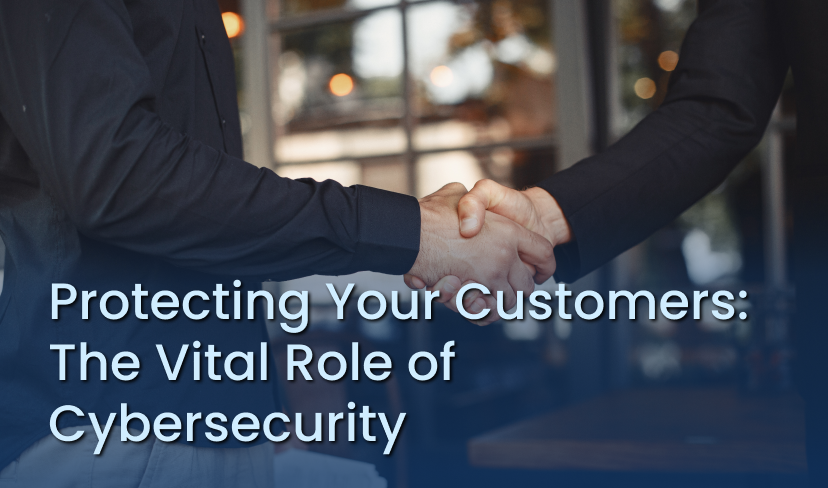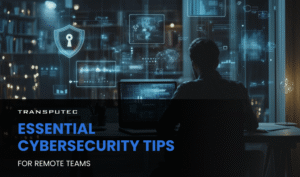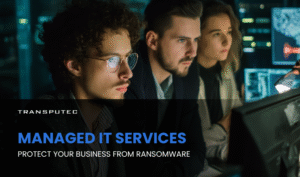Your customers place their trust in your business every time they engage with your services. But what happens when that trust is shattered by a cybersecurity breach? The implications can be catastrophic, not just for your organisation but, more importantly, for the customers who rely on you.
By implementing strong cybersecurity measures, you can protect your business and maintain the trust of your customers. From understanding the concept of cybersecurity to assessing potential risks and implementing robust security measures, this blog will equip you with the knowledge needed to safeguard your digital assets.
Understanding Cybersecurity
Cybersecurity, oh what a fancy term! To put it simply, cybersecurity refers to the protection of computer systems, networks, and data from unauthorized access, theft, or damage. In today’s digital age, cybersecurity is more crucial than ever before.
But why should businesses care about cybersecurity? When trust is compromised due to a cybersecurity breach, the repercussions are far-reaching and multifaceted. Customers who once had faith in your organisation may suddenly find themselves questioning their decision to engage with your services.
Loss of Faith: Trust is the cornerstone of any customer relationship. A cybersecurity breach erodes this trust, leaving customers feeling betrayed, vulnerable, and uncertain about the safety of their data and interactions with your business. The psychological impact of such an incident can be profound, affecting their perception of your organisation.
Emotional Toll: Beyond the financial and practical implications, there’s an emotional toll on your customers. They may experience anxiety, frustration, or anger at having their personal information compromised. This emotional distress can lead to sleepless nights and a sense of violation, further damaging their overall well-being.
Reputation Damage: Word travels fast in the digital age. When customers experience a breach of trust, they’re likely to share their negative experiences with others, potentially tarnishing your reputation. The impact can extend beyond the immediate circle of affected customers, as the story may gain traction on social media and news outlets.
Besides the points mentioned above, there are legal and financial consequences to consider. Imagine the horror of facing hefty fines for failing to comply with data protection regulations. And let’s not even get started on the potential lawsuits. Trust me, you don’t want to be stuck in that nightmare!
It’s time to take cybersecurity seriously. No more leaving the virtual doors wide open for cybercriminals to waltz right in. Implement robust security measures, educate your employees, and stay vigilant against potential threats.
Assessing Potential Risks
When it comes to ensuring the safety of your customers, you can never be too careful. Identifying vulnerabilities in your system is a crucial step in safeguarding your business from cyber threats. Whether it’s outdated software, weak passwords, or unencrypted data, understanding the weaknesses in your security infrastructure is essential.
Phishing emails, malware, ransomware – the list seems never-ending. It’s like a fun game of cat and mouse, except in this case, the mouse wants to steal your valuable customer data.
Remember, it’s not just about ticking off boxes or complying with regulations. It’s about protecting the livelihood of your business and the trust of your customers. So, let’s dive deep into the world of cybersecurity. With the right knowledge and tools, you’ll be able to face any threat head-on.
Implementing Strong Security Measures
When it comes to ensuring the safety of your customers, implementing strong security measures is crucial. You can’t just rely on luck and hope that hackers won’t target your business. You need to take proactive steps to protect your valuable data and maintain the trust of your customers. Here are some key measures you should implement:
First and foremost, use robust firewalls and antivirus software to create a solid defense against cyber threats. It’s like having a bouncer at the entrance of your virtual club, stopping malicious actors from getting in.
Next, enforce password policies to make sure that your employees are not using “password123” for every account. Come on, people, we can do better than that! Strong and unique passwords are the key to keeping your data secure.
Another important security measure is implementing multi-factor authentication. This adds an extra layer of protection by requiring users to provide additional proof of their identity, like a fingerprint or a one-time verification code. It’s like having a bouncer who not only checks your ID but also asks for a secret handshake.
Encrypting sensitive data is also vital. It’s like putting your top-secret files in a vault and then throwing away the key. Encryption ensures that even if someone manages to breach your security defenses, they won’t be able to make sense of the stolen data.
Lastly, regularly updating your software and systems is essential. It’s like giving your business a vaccine to protect against new and evolving cyber threats. Keeping your software up-to-date patches vulnerabilities and helps you stay one step ahead of hackers.
Employee Education and Training
Creating a culture of cybersecurity awareness is crucial in ensuring the safety of your customers and protecting your business from cyber threats. By instilling a sense of responsibility and vigilance in your employees, you can significantly reduce the risk of breaches and attacks. Encourage open discussions about cybersecurity and the potential consequences of negligence. Make it a part of your company’s values and ensure that everyone understands the importance of their role in maintaining security.
Regular training sessions are essential to keep your employees updated on the latest threats, attack methods, and best practices. Conduct workshops, webinars, or even interactive games to make the training sessions engaging and memorable. The goal is to empower your employees and equip them with the knowledge and skills they need to identify and respond to potential threats.
Promoting best practices is another crucial aspect of employee education. Teach your employees to create strong passwords, avoid suspicious emails and links, and regularly update their software. Encourage them to report any suspicious activity or potential security risks promptly.
Monitoring and Detecting Threats
Monitoring and detecting threats is a crucial aspect of ensuring the safety of your customers and boosting your cybersecurity. Implementing intrusion detection systems is a proactive way to identify any potential unauthorized access attempts or malicious activities in your network. These systems act as an early warning system, alerting you to any suspicious behavior so that you can take immediate action.
But it doesn’t stop there. You also need to actively monitor network activity to spot any anomalies or abnormalities. By analyzing network traffic, you can identify any patterns that may indicate a cybersecurity threat. This allows you to stay one step ahead of potential attackers and take preemptive measures to protect your systems and customer data.
Responding to Incidents
When it comes to cybersecurity, it’s not a matter of “if” but “when” an incident will occur. That’s why it’s crucial for businesses to have a proper incident response plan in place. This plan should outline the steps to be taken in the event of a breach, from identifying the source of the attack to mitigating the damage and restoring normal operations.
In addition to developing an incident response plan, businesses should also prioritize creating backup and recovery procedures. Regularly backing up important data and files ensures that even if a breach occurs, the impact can be minimized and data can be restored from a safe and secure backup.
Engaging with cybersecurity experts is another key aspect of responding to incidents. These experts have the knowledge and experience to analyze the breach, identify vulnerabilities, and provide guidance on how to prevent future attacks. By partnering with cybersecurity experts, businesses can stay one step ahead of cybercriminals and protect their valuable assets.
Don’t Do It Alone
Navigating the complex realm of cybersecurity can be daunting, especially if you’re not an IT expert. Trying to safeguard your business against ever-evolving cyber threats, regain customer trust, and maintain your brand’s reputation can be overwhelming if you’re going it alone.
This is where partnering with cybersecurity experts, like Transputec, comes into play. We don’t just sell cybersecurity services; we offer a helping hand, a guiding light to ensure your business stays protected. Our team of experienced cybersecurity professionals will work closely with you to assess your unique vulnerabilities, develop a robust cybersecurity strategy tailored to your needs, and implement state-of-the-art security measures.
Contact us now to get in touch with our experts and embark on a data-driven journey to success with Transputec.







